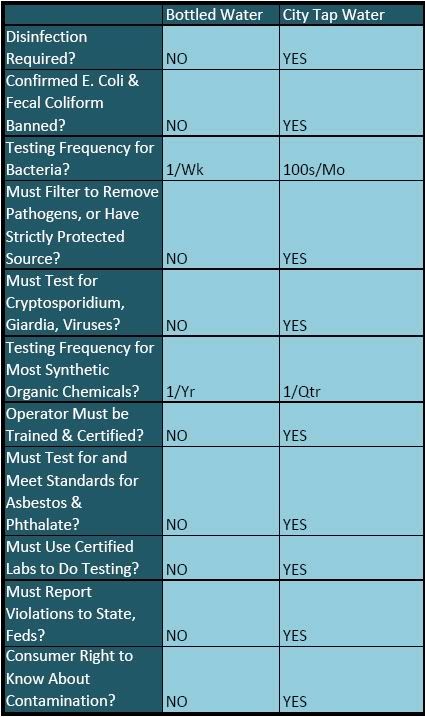I did a bit of research, finding articles about the taste tests (people couldn't really tell the difference, especially when it came to high end brands vs. low end brands) but that wasn't really the information I was digging for. I wanted to know what regulations were in place, what levels of contaminant were acceptable, what tests are done and how often.
I came across a study done by NRDC (Natural Resources Defense Council). It compared bottled water, carbonated water, city water (using surface water) and small town water (using well water). To keep it simple I'll focus on bottled water and city water.
In the spirit of transparancy, I had a bias against the FDA going into this. Their support of giant agribusiness, their choice to ignore CFO's as a place to start in the fight against H1N1 (and other potential diseases or bacteria), and their loose regulations on pharmaceuticals (to name a few items) has not made me a fan. I'm not suggesting that the EPA is without their flaws, however.
My findings were a bit more disturbing than previously thought.




It seems to me that tap water is regulated more than bottled water. I looked for studies testing both tap and bottled water for contaminants but did not find the research. I'm sure it's out there and will be sure to follow up if I find it.
My conclusion: get yourself a stainless steel water bottle, a filter for your tap and leave the BPA infested bottled water alone. Why spend the extra money?

The NRDC chart is extremely informative. I was unaware of how lax Carbonated water's guidelines were. I would think that on a competitive landscape, certain bottling companies would find it worthy to market that they were cleaner and better than other water companies.
ReplyDelete